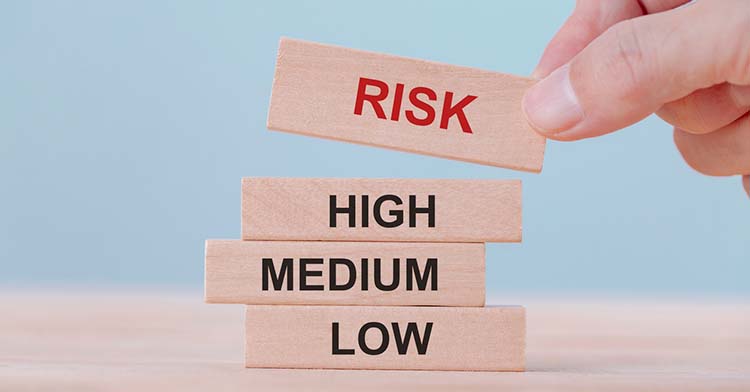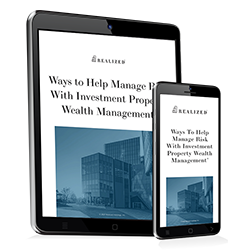Page 5 41 - 50 of 142
How to Calculate Unsystematic Risk

Our blogs continually drive home the point that all investments have a degree of risk, such as business risk, credit risk, and micro market risk. There is also systematic risk, which includes inflation, interest rate changes, recessions, and even pandemics.
What Is Default Risk?

Whether you are applying for funds to buy an investment property or considering tenants for a rental property you own, understanding default risk is an essential part of the process. Default risk is a concept that lenders and landlords use when determining whether to lend money or sign a contract with renters.
How to Reduce Inflation Risk in Construction

Anyone reading today’s headlines (or trying to heat their homes, fill their cars, or buy food) knows that prices are going up. By the end of June 2022, the U.S. inflation rate stood at 9.06%, close to double the 4.99% reported at the same time the year before.
How to Use Leverage to Invest in Real Estate

Purchasing an expensive property requires a large cash outlay. This can mean missing out on other potential opportunities and assuming full investment risk.
What Is Business Risk?

Dun and Bradstreet, a renowned data and analytics firm, defines business risk as “anything that could threaten a company’s financial health or lead to insolvency.” Of course, every business faces risks, and the ones that successfully manage them are the ones that survive and even thrive. Risks can be internal or external, and some can be predicted and possibly avoided, while others are unavoidable but to which a company can potentially respond.
What Are the Major Risks in Real Estate Investing?
.jpg?width=750&height=392&name=what%20are%20the%20major%20risks%20in%20real%20estate%20investing%3F-1306629866%20(1).jpg)
Every investment has risk. Earning a return above the risk-free rate means taking risk. The analysis of risk is a big topic. But there are some real estate risks that we can identify as being much higher than other risks. This isn’t to play down lesser risks. But at least knowing where major investment risks lie can provide a quick risk mitigation checklist for potential investments.
What Is REIT Dividend Risk?
%20risk%3F-1192866996.jpg?width=750&height=392&name=What%20is%20duration%20(horizon)%20risk%3F-1192866996.jpg)
Many investors turn to real estate investment trusts (REITs) for portfolio diversification, dividend income, and potential long-term appreciation of their initial investment capital.
What Is Exchange Rate Risk?

All companies face various risks that can affect their business activities' financial and operational success. Some risks can be anticipated and potentially preempted or mitigated, while others may be unexpected and unavoidable. Investors should look for known, disclosed, and potential unknown risks when evaluating investment options. Some types of exposure are common to all businesses, some might be specific to a particular industry or operational structure, and others could be individual or rare. Let’s examine some of the risks many companies face.
What Is Over-Leverage in Real Estate?

Real estate investors often use leverage to help increase the performance of their returns. While this works well when property values are appreciating and operations are running smoothly, it can backfire when things aren’t going as well. This problem is exacerbated when an investor decides to over-leverage.
Why Do Short-Term Bonds Have More Investment Risk?

A 60/40 investment portfolio is a traditional allocation of equities and bonds. Meaning that 60% of the portfolio is invested in equities and 40% in bonds. This split is meant to counter peaks and troughs in equities. Periodic rebalancing is also needed to maintain the allocation.
Page 5 41 - 50 of 142


